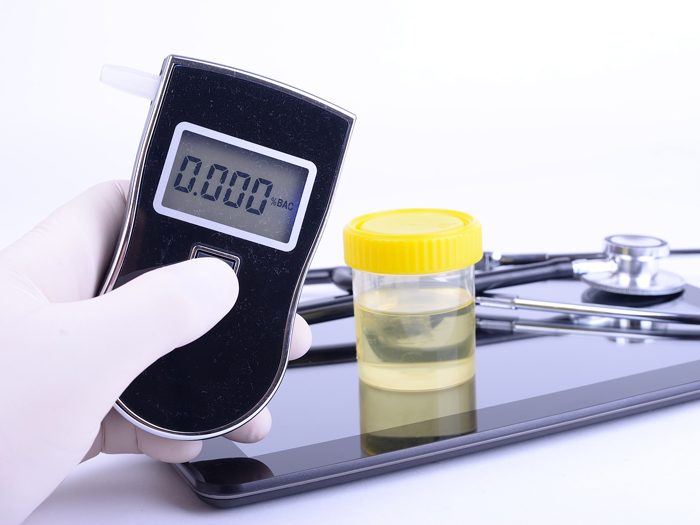Drug and Alcohol Testing
Wasted Time Sinks Bid to Deny Claim

A post-incident drug and alcohol testing program can be a useful tool. But only if you’re prepared to administer tests on the spot.
One employer failed to administer a breathalyzer test in a timely manner after an employee injured his back on the job. Now, the injured employee will receive full workers’ compensation benefits even though alcohol use was never ruled out.
Travon McCall injured his back while working as a cook-line operator for Sanderson Farms Inc. He willingly stayed on the property another hour and a half after reporting his injury, during which a breath-alcohol technician was called to the scene. McCall’s pain forced him to leave before the technician even arrived, and the company saw his actions as refusal to take the test.
The court had a different view.
Ticking Clock
In the state of Mississippi, when an employee is injured on the job, “the employer shall have the right to administer drug and alcohol testing or require that the employee submit himself to drug and alcohol testing.” McCall was working the late shift on May 10, 2014. He was tasked with lifting a forty-pound tub of waste flour, and when he bent down to pick it up, he felt searing pain in his lower back. Quickly, he reported the injury to his supervisor.
McCall, unable to sit due to the pain running down his right leg, waited 20 minutes for the company nurse to arrive and administer a drug test. Unfortunately, McCall was unable to provide a testable urine sample the first time around. The nurse offered him 40 ounces of water to try again, letting him know that he would have up to three hours to produce a sample before the test would be completely unusable.
In the meantime, the breath-alcohol technician was on his way. After an hour and a half had passed, McCall, already frustrated with the failed drug test and the continuing pain, did not want to wait any longer. He walked out of the building, heading straight for the hospital.
The breathalyzer technician arrived shortly after McCall’s departure. His services were not used. Later, the technician billed Sanderson Farms for his time, though the bill did not list an arrival time to the facility on that night.
River Oaks Hospital, a mere two miles down the road from Sanderson Farms, recorded McCall arriving at 12:24 a.m. on May 11. Upon his arrival, McCall was greeted by one of his supervisors who already had the employee’s workers’ comp paperwork ready to sign. The hospital personnel administered a second drug test, which McCall passed. They treated his back injury and sent him on his way.
No breathalyzer test was offered to McCall.
On May 12, 2014, Sanderson Farm terminated McCall’s employment, stating McCall “voluntarily resigned” due to “refusal of drug/alcohol test” and leaving the premises without permission.
An administrative judge ruled McCall’s injuries were compensable. When the employer contested the ruling, the Mississippi Workers’ Compensation Commission reversed the judge’s decision. McCall appealed.
Lack of Substantial Evidence
On August 1, 2017, Sanderson Farms alleged that McCall refused to submit to a drug and alcohol test by leaving the facility. A refusal to a test is reason enough to believe the injured worker was under the influence during the time of injury. However, the Court of Appeals of Mississippi noted, McCall was at the facility for at least an hour and a half following his injury.
Additionally, McCall had signed a statement when he was with the company nurse. It said he agreed to a drug and alcohol test “including but not limited to urine testing or breath analyzing for drugs and alcohol.”
From this, the court decided that “given that an employee supervisor was present at the hospital … and that McCall gave written permission submitting himself to testing, we find that the evidence is insufficient to support an inference that McCall intentionally refused to cooperate with his employer’s requirement that he submit himself to testing for alcohol.”
Further, “McCall remained on the premises and [was] available for alcohol testing for an hour and a half after he reported his injury,” said the court. “Sanderson Farms did not offer him a breathalyzer test during this time.”
The court reversed the Commission’s decision — which the court noted was not supported by substantial evidence.
Cite: McCall v. Sanderson Farms Inc.








